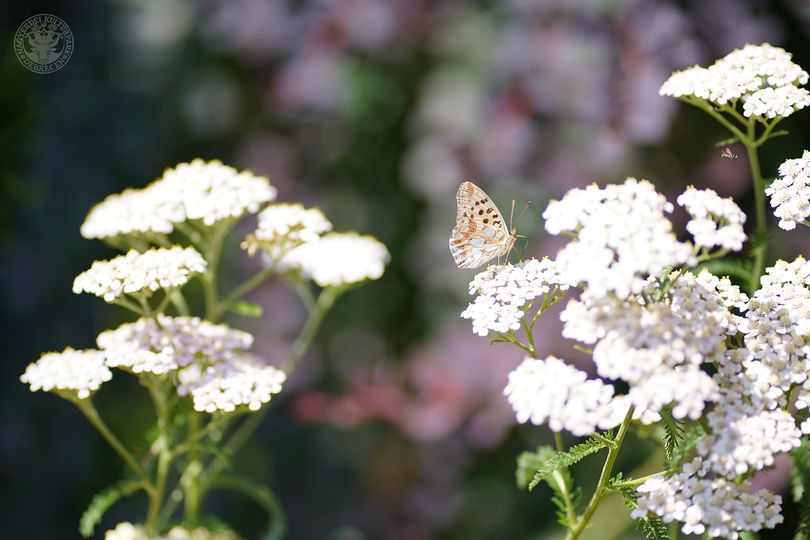March 10 has been designated National Pollinator Day in Hungary since 2018 with the aim of raising awareness of all pollinating animals, including bees and wasps as well as flies, moths, butterflies (like the Queen of Spain fritillaries often found in our Park, with a specimen sitting on some yarrows in our picture), some birds and bats and, the largest of all pollinators, ruffed lemurs.
Pollinators play a vital role in ecosystems by carrying pollen grains from one plant to another to enable plant fertilization as a by-product of feeding activities, ensuring the reproduction and survival of wild vegetation and agricultural crops alike. On the whole, two-thirds of all plants we produce and one-third of food crops are reliant on their help.
Flying insects, including many pollinator species, now face an alarming degree of decline, primarily due to agricultural and industrial encroachment, the excessive use of agricultural insecticides, competition with invasive species, and climate change. As their mass disappearance would have devastating ecological and economic effects, it is in our best interest to try and help our busy little friends however we can. Besides promoting and supporting eco-friendly economic practices, we can easily turn our own gardens or backyards into safe havens for pollinators with the addition of an insect hotel or a bee pasture. Pollinators native to our park have multiple hotels to choose from as well as a particularly nutritious mixture of flowers blooming every spring in the Scent Garden.
Debrecen Zoo


















